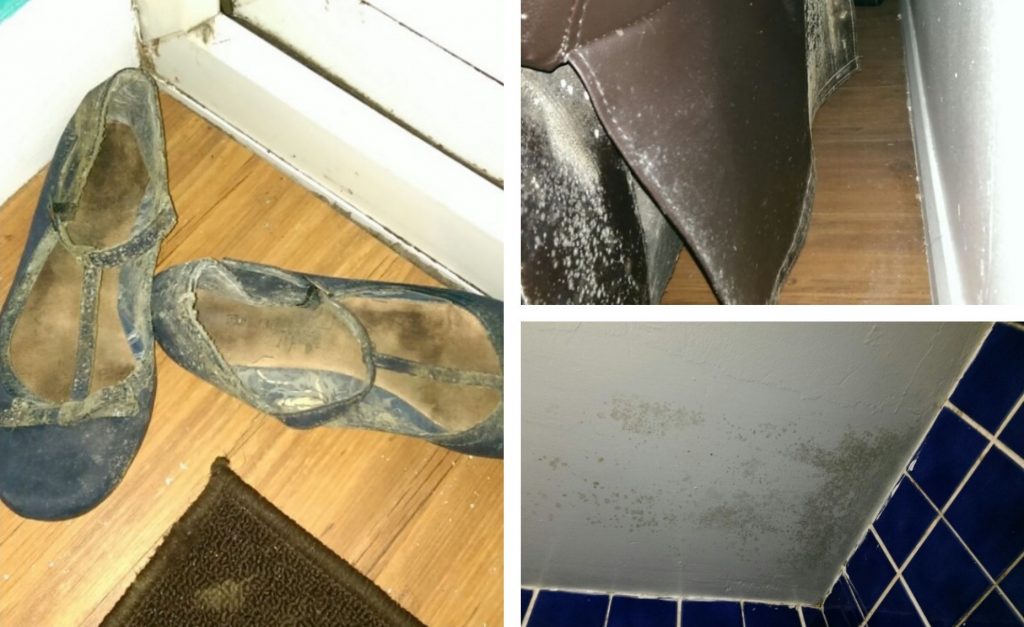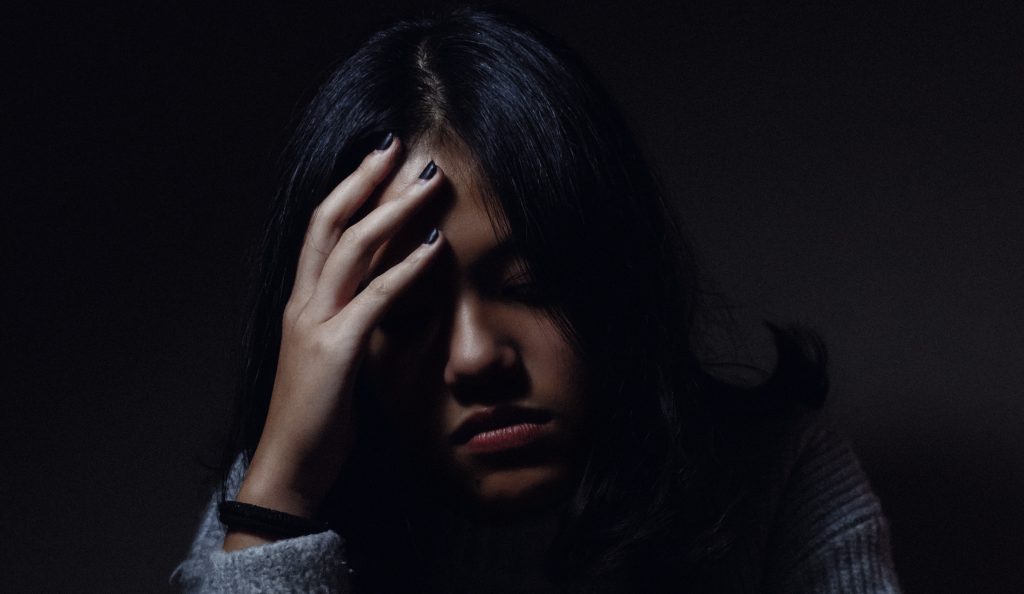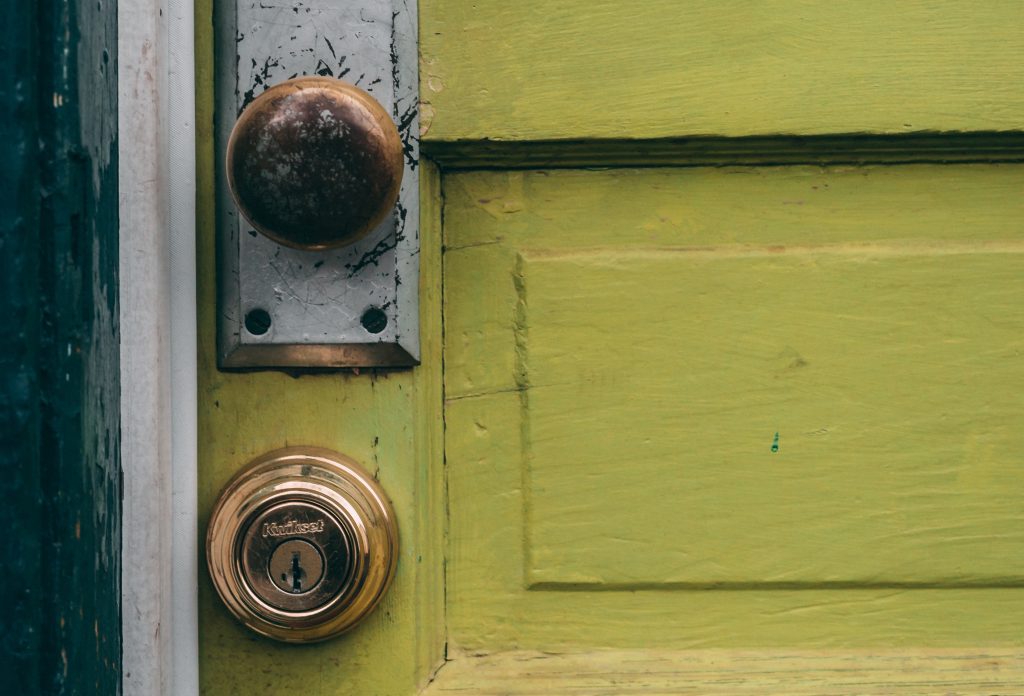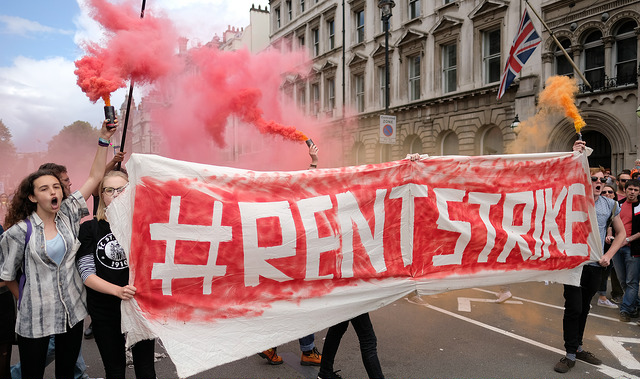Having somewhere safe to call home is one of the most fundamental aspects of our daily lives, and it has a profound reach across our human rights. From our health and education to our family lives and dignity, these are protections afforded to us all.
However, for many of us, this simply doesn’t translate into reality. From faulty appliances to dangerous living conditions, many tenants find themselves trapped in unsanitary homes, often unable to complain for fear of being kicked out.
And it’s a problem that’s getting worse. Almost three-quarters of a million people are living in unsafe or unsanitary homes, according to a new investigation by The Times. At least 375,000 of these tenants are in a home with a potentially life-threatening fault.
But what are the rules? What can tenants legally expect and who can they turn to if things go wrong? And just how bad can things get?
‘I Had A Rash All Over My Chest, It Affected My Mental Health For Sure’

Sarah’s house was infested with mould and slugs. Image Credit: Sarah Aldridge
For Sarah Aldridge, a 26-year-old Account Manager from Reading, the problems began when she was desperate for a place to live to take up a job. At just £600 a month, it seemed like a bargain, but things weren’t quite what they seemed.
“I lived in an annexe in a family’s garden,” she told RightsInfo. “It was infested with slugs and caked in mould, no exaggeration. I had to throw all my clothes out as they grow mouldy and I got unwell. I had a rash all over my chest area, I was getting colds all the time and it affected my mental health, for sure.
“The craziest part of it all was that I couldn’t accept there was mould. I would scrub at the sofas and tell myself it was makeup or something, which sounds ridiculous as I knew it was there, but I didn’t register it. I can’t explain it.
It was infested with slugs and mould. I had a rash all over my chest and it affected my mental health, for sure.
Sarah Aldridge
“They didn’t have any health and safety stuff either, and the heating was connected to the house, so I never had heating or hot water. My sheets would always feel damp when I got into bed. I can’t believe I lived there, but I was desperate.”
Sarah complained insistently, but her landlord was determined the problems were her fault. Even when she upped and left six months later, he tried to keep her deposit until she threatened to get in touch with the local council. It might sound like an extreme example, but it’s actually far too common.
‘We Called The Landlord More Than 30 Times’
 Alice Sholl moved to London to try and make it as a journalist. Image Credit: Alice Sholl
Alice Sholl moved to London to try and make it as a journalist. Image Credit: Alice Sholl
Natalie Marchant, a freelance writer from Glasgow, told RightsInfo how she contracted “tonsillitis, cystitis and conjunctivitis all over a period of two months,” after the landlord refused to fix a hole in the roof which meant it “essentially rained in my bedroom.”
With every drip your heart just sinks and you think this isn’t what I hoped it would be
Alice Sholl
Alice Sholl, a journalist living in London, was forced to call her landlord and agency more than 30 times after a leak in the roof meant that whenever it rained water would pour through on the power sockets in her room. “It was the emotional effect too,” she explained. “I came to London really wanting to establish myself, but with every drip, your heart just sinks and you think ‘this isn’t what I hoped it would be.'”
The landlord did eventually come round, but not to fix the roof. “He just got his mates to paint over the drip marks and didn’t fix the roof,” she added. “After about 30 calls the agency just said, ‘Look, the landlord isn’t going to do anything'”.
These three stories aside, research by housing charity Shelter in 2016 also found that as many as one in eight tenants has been at the hands of landlords who’d broken the law, whether through dangerous conditions, cutting off utilities or throwing out their possessions. But just what can tenants do?
A Lack of Knowledge Of Rights
 Stock Image. Image Credit: Anh Nguyen / Unsplash
Stock Image. Image Credit: Anh Nguyen / Unsplash
One of the biggest problems surrounding rights for tenants is the complexity of the law. The Government has published a Decent Homes Standard, which sets out minimum requirements for homes. These state that the home should be in a “reasonable state of repair, have reasonably modern facilities and services (for example the bathroom must not be more than 30 years old), and provide a reasonable degree of thermal comfort”. However, a recent analysis by The Independent found more than a third of private rentals failed basic health and safety checks.
It’s a huge question about rights. It’s not necessarily the same in each type of tenancy
Nikki Carr, Arden Chambers
There are times when the Human Rights Convention can come into play too, for example Article 8 which protects the right to a private and family life, Protocol 1-1 which protects the peaceful enjoyment of property, and Article 14 which prohibits discrimination. However, beyond this it all becomes a bit unclear.
Nikki Carr, a barrister at Arden Chambers, explained: “It’s a huge question [about rights], and the first thing is it’s not necessarily the same in each type of tenancy. You have the basics, like the right to peaceful enjoyment, but certain things will be guided by the contract.”
“So, in social housing the maintenance of heating and hot water would ordinarily be obligations for the landlord, but in a private situation this can be put on the tenant, so your first point of reference really is the contract.”
A Challenge of Education

Image Credit: Tucker Good / Unsplash
It’s undeniable that housing law for tenants is a tricky area. “Most certainly in the last ten years or so there’s been a huge amount of changes in the law,” added Nikki. “Even some lawyers have struggled to keep up.” She doesn’t think “for a second” there’s enough accessible information available for tenants.
Information about their rights as a tenant is not easily accessible and even when they go down the correct route it can be a complicated process.
Jake Butler, Save The Student
It’s a view also echoed by Jake Butler of Save the Student, an organisation which helps and advises students on any money related matters. “The number of students living in poor housing conditions is a huge issue, and in some extreme cases, we have had students contacting us with nowhere to turn,” he told RightsInfo. “Information about their rights as a tenant is not easily accessible and even when they go down the correct route, it can be a time consuming and complicated process.”
While the law might be complex, tenants will ultimately never be able to enforce their rights unless they’re empowered to understand them, and both Jake and Nikki agree there should be a drive in this area. For tenants like Sarah, Natalie and Alice though, it’s also about putting rights at the heart of renting.
“There still seems to be this outdated idea that renting is somehow almost an exception and that really, eventually, you’ll be owning a house – but that isn’t always an option now,” added Alice. “Laws need to keep up with that change. Things aren’t the same as 30 years ago. Having a secure home is my number one goal. It’s hard realising that goal might not be there. Everyone should have a right to their own home.”
If you need help or advice on matters as a tenant, contact your local Citizens Advice Bureau or Shelter.







